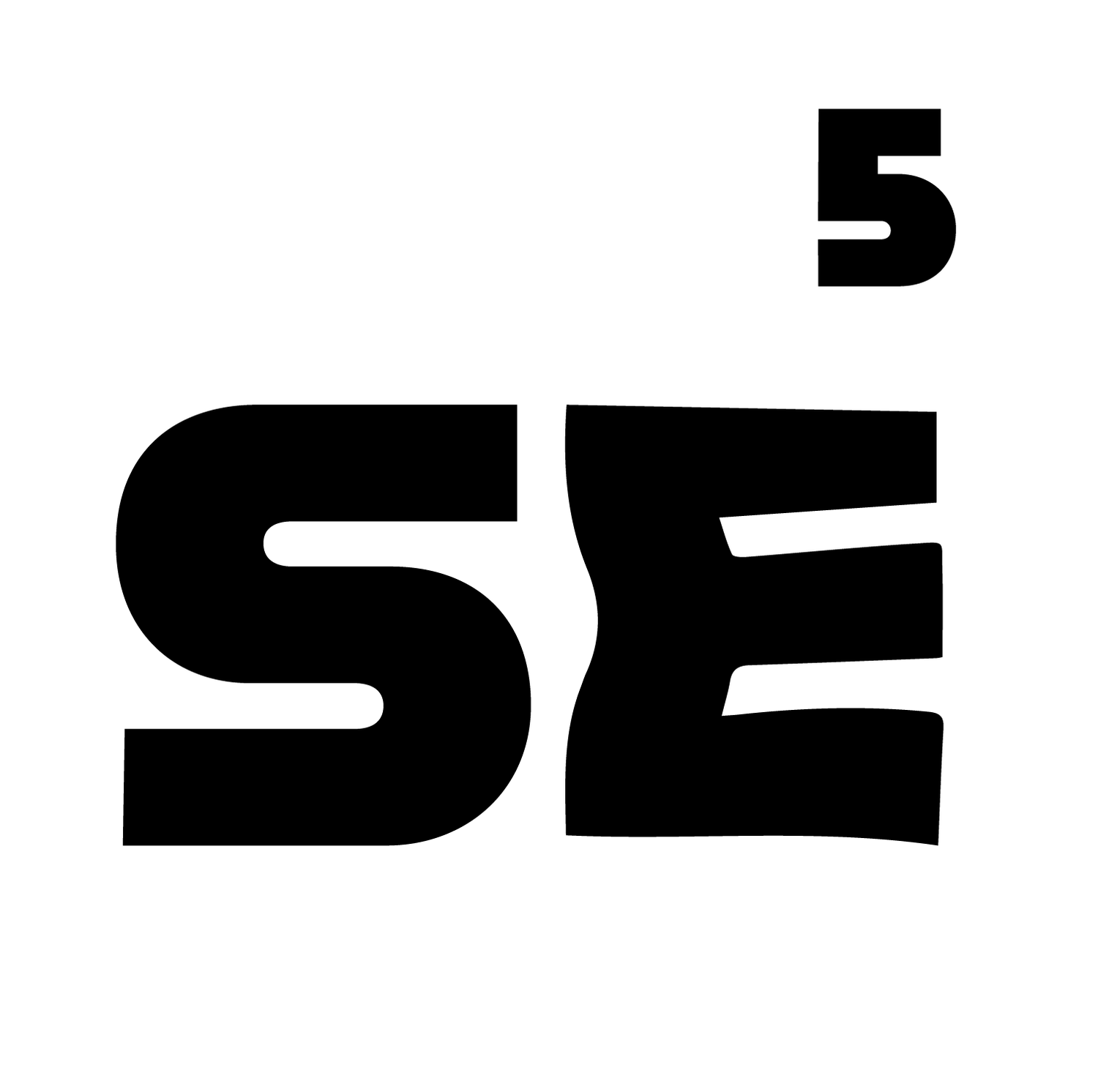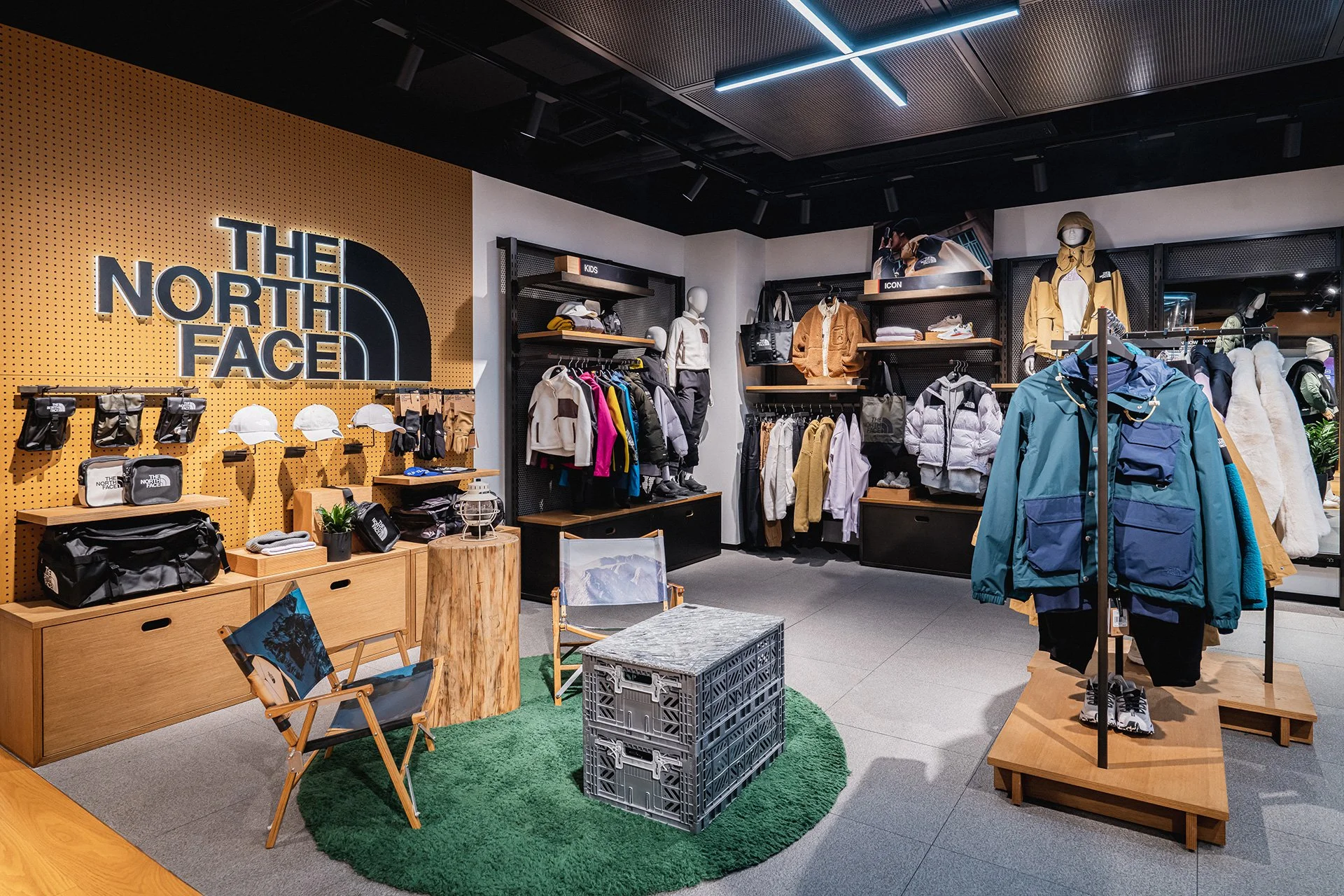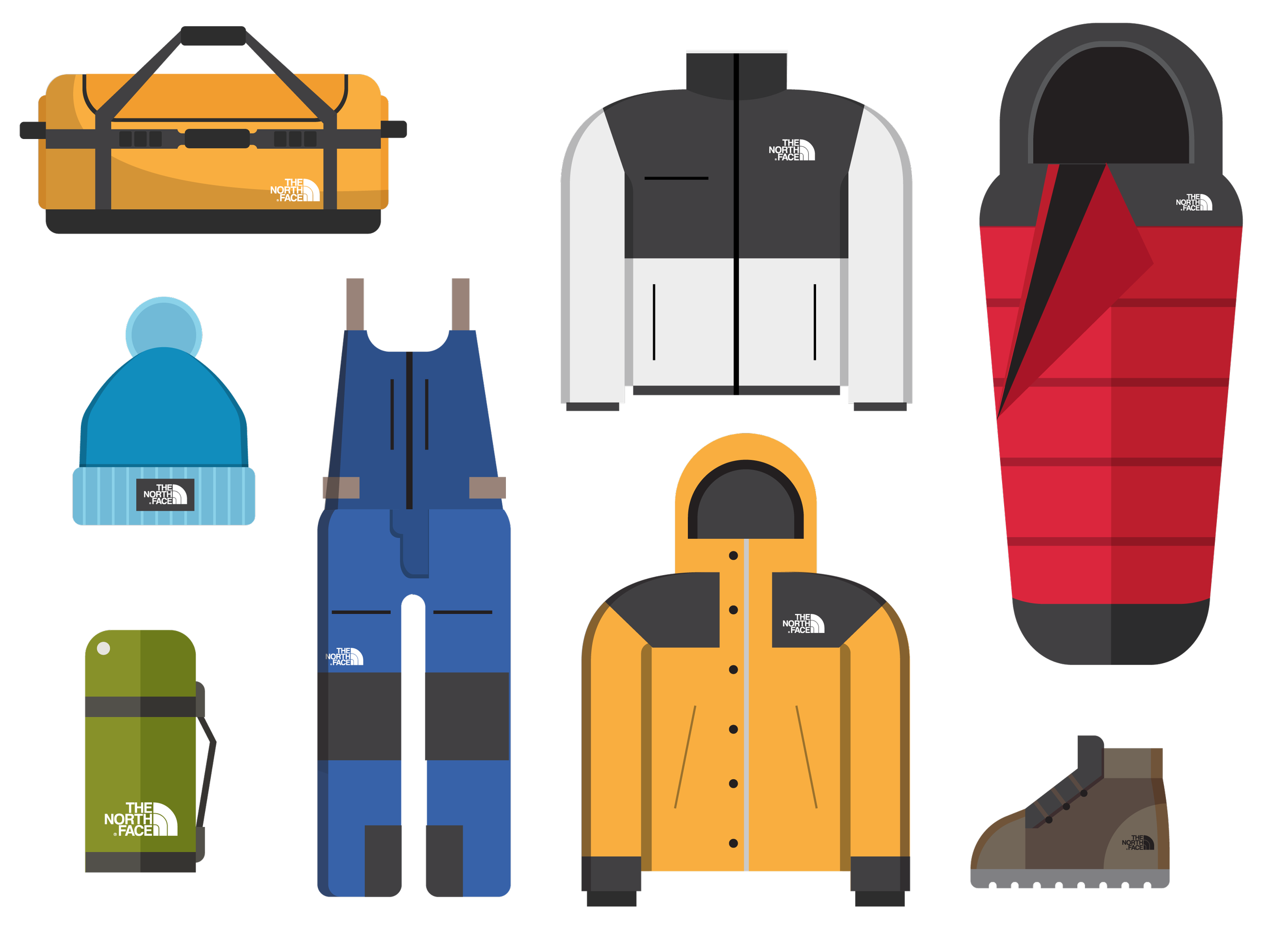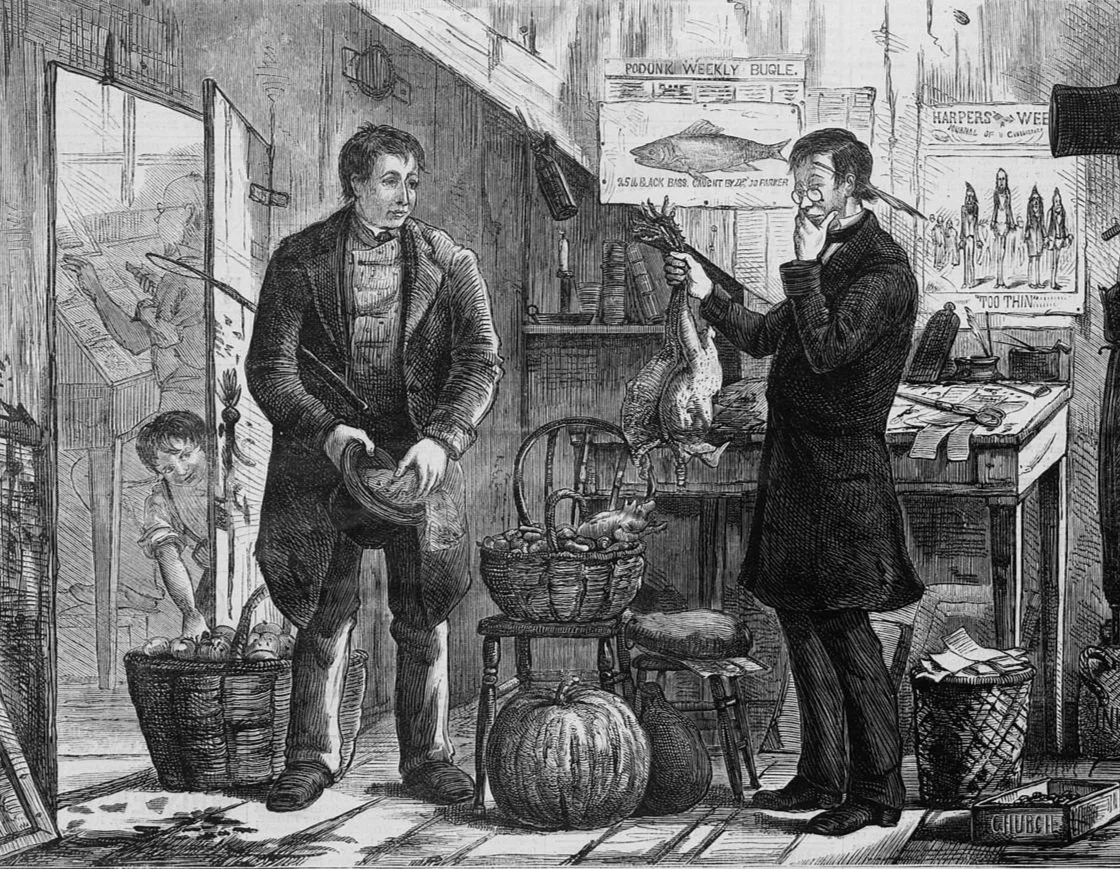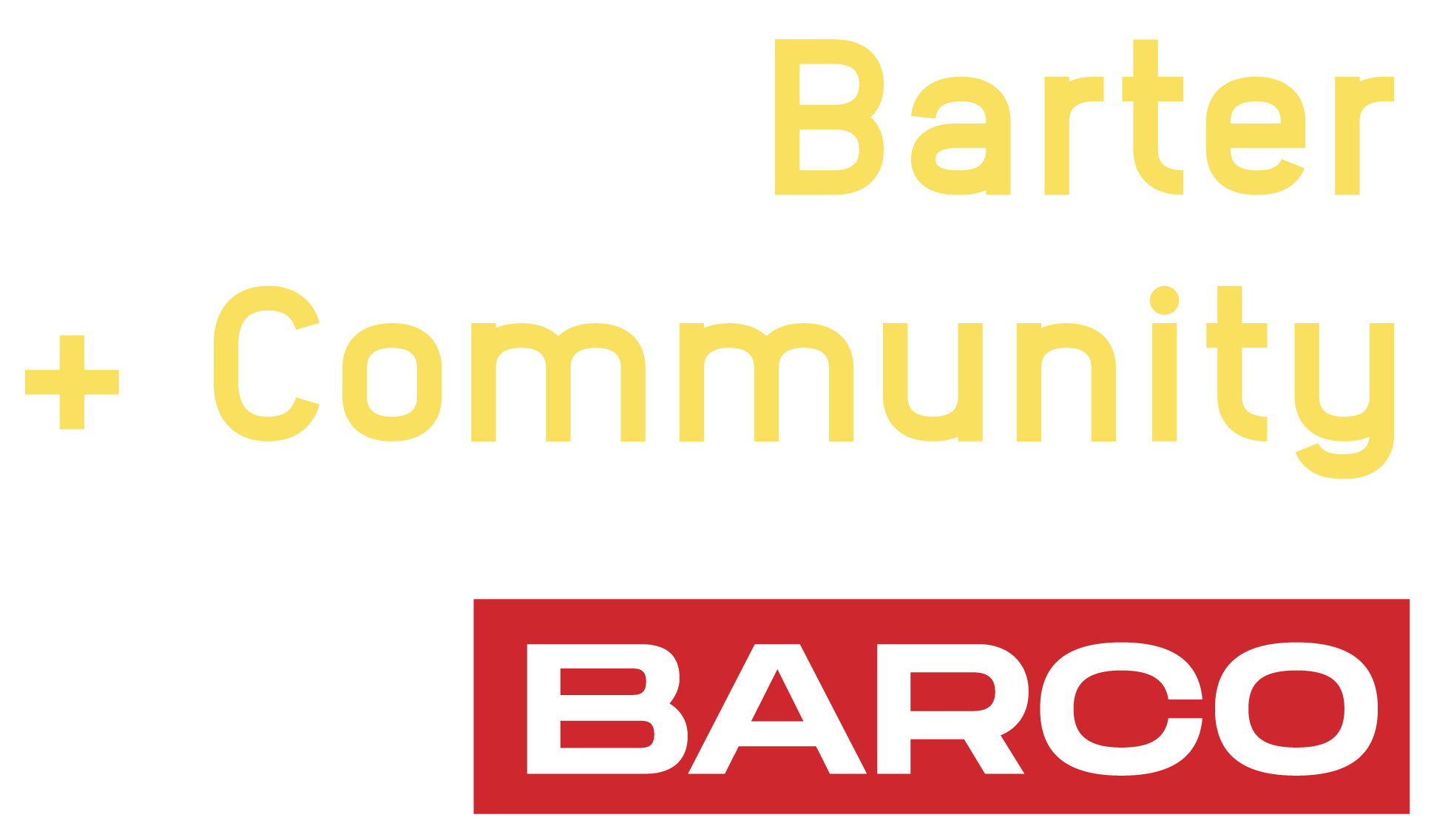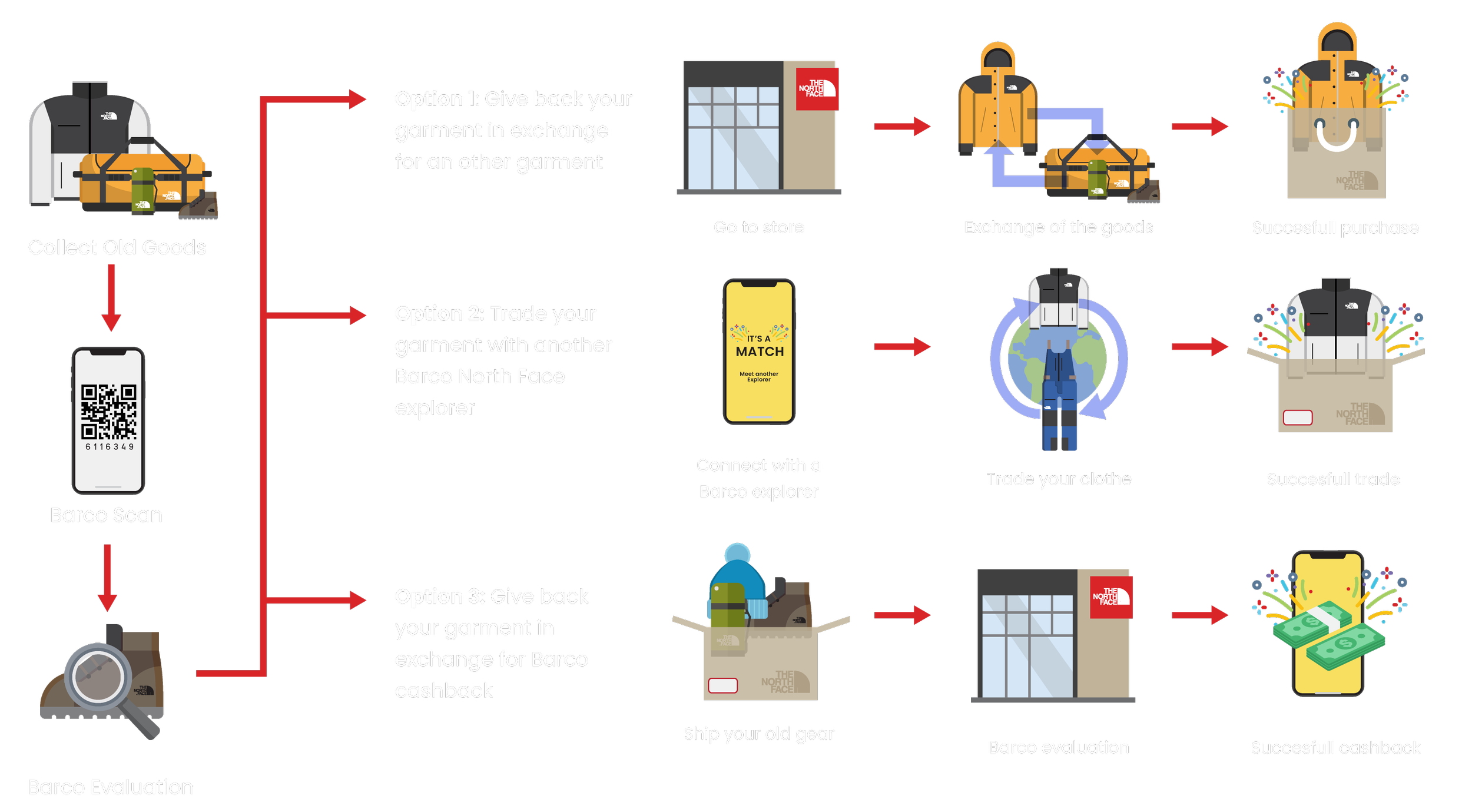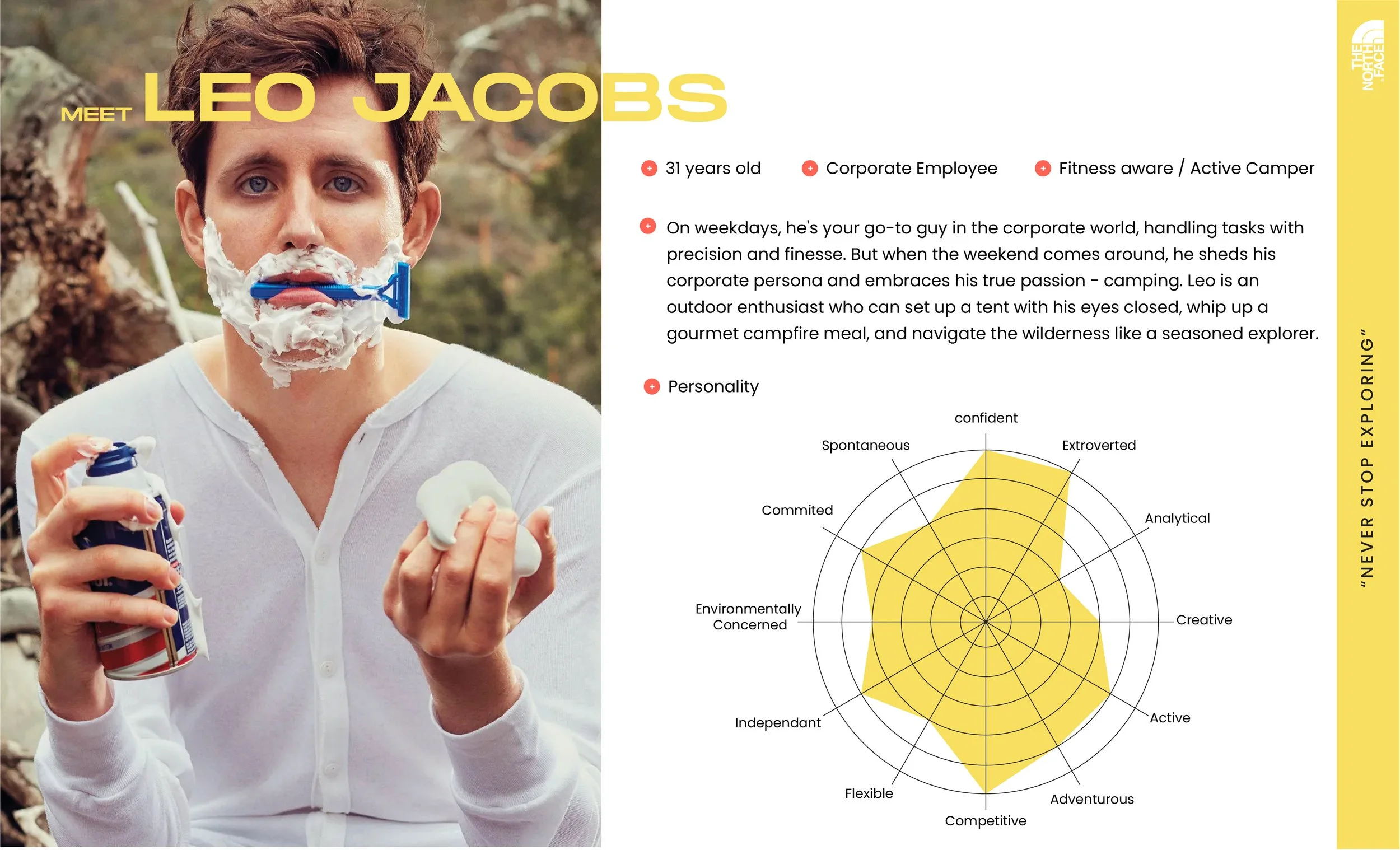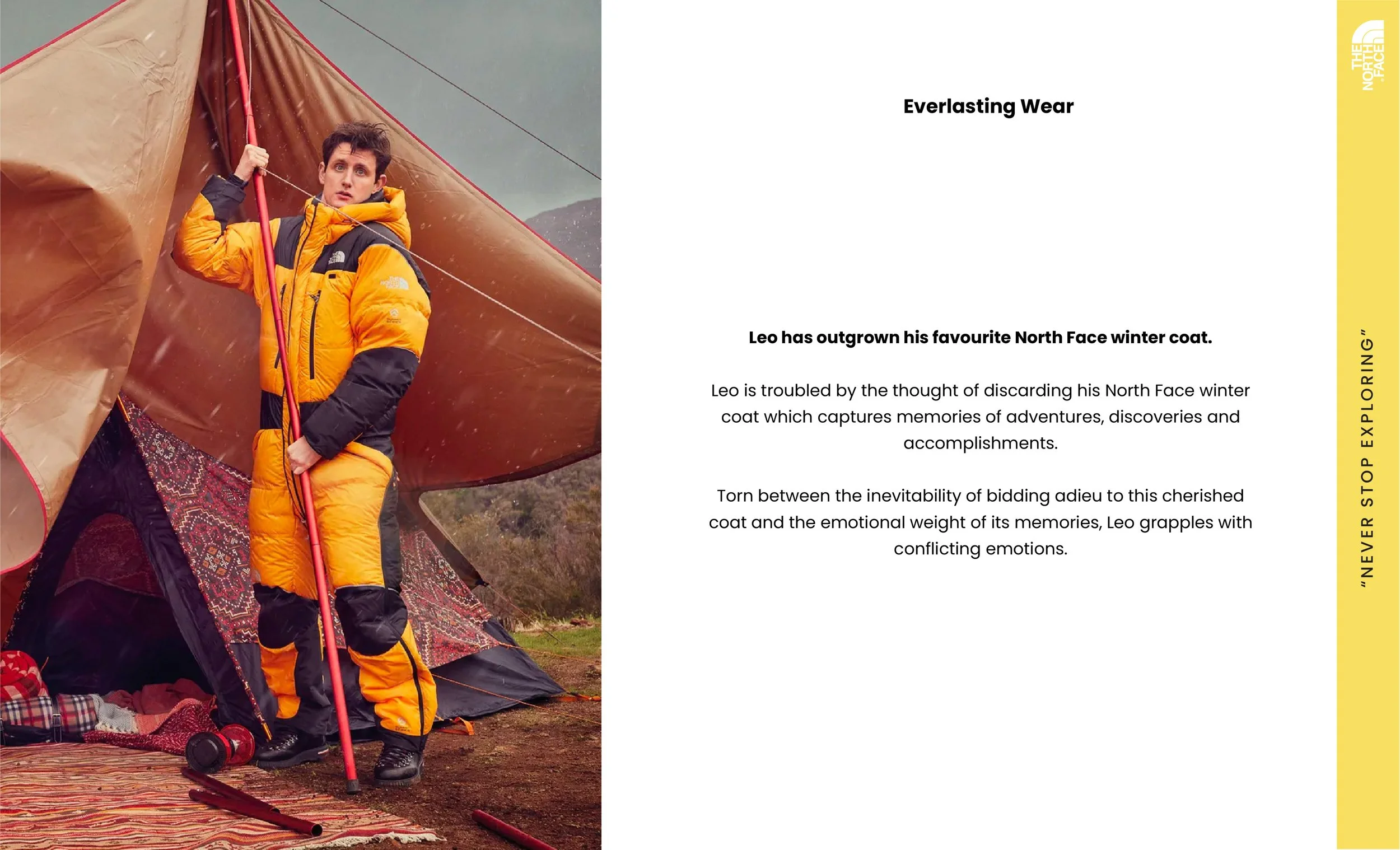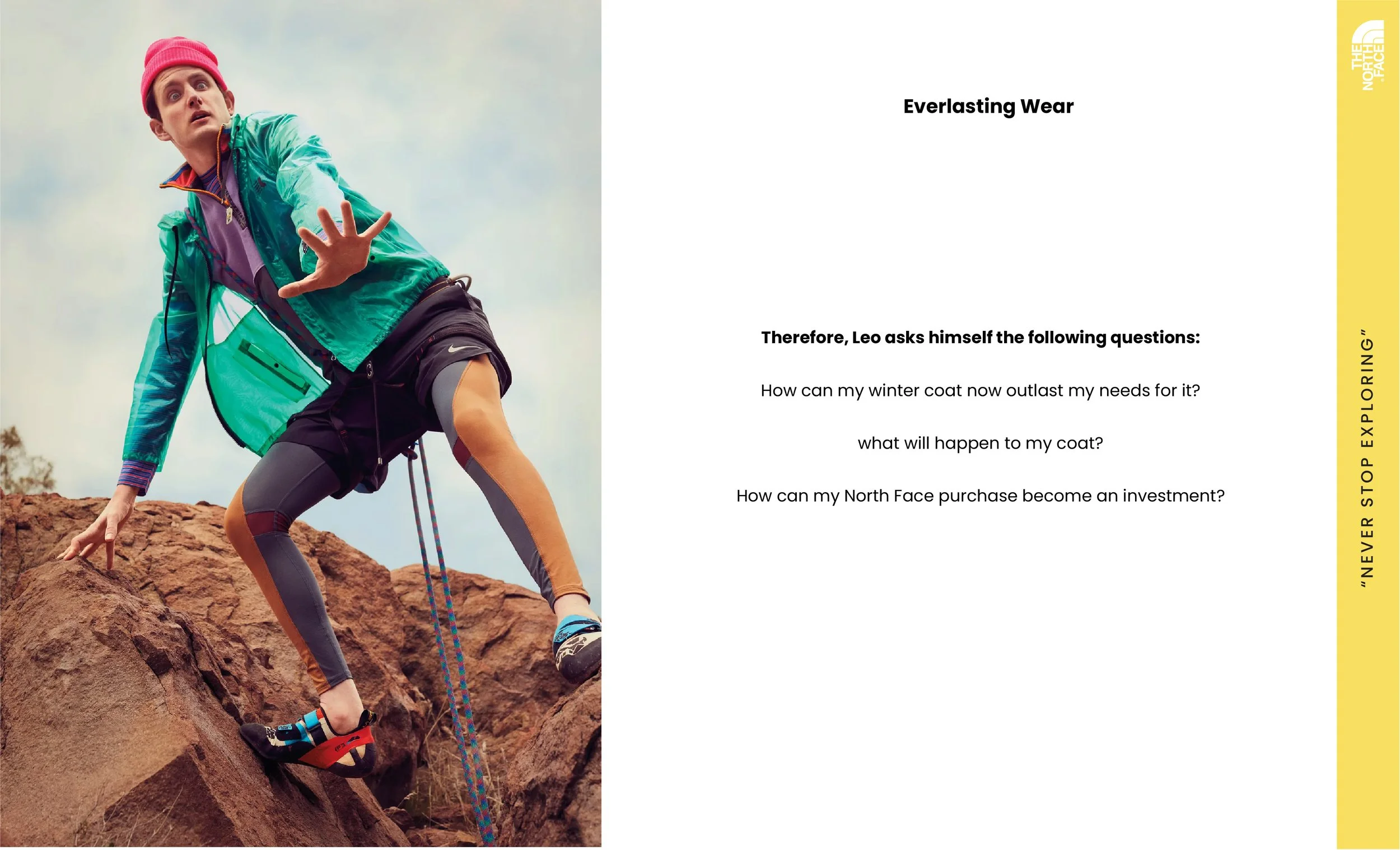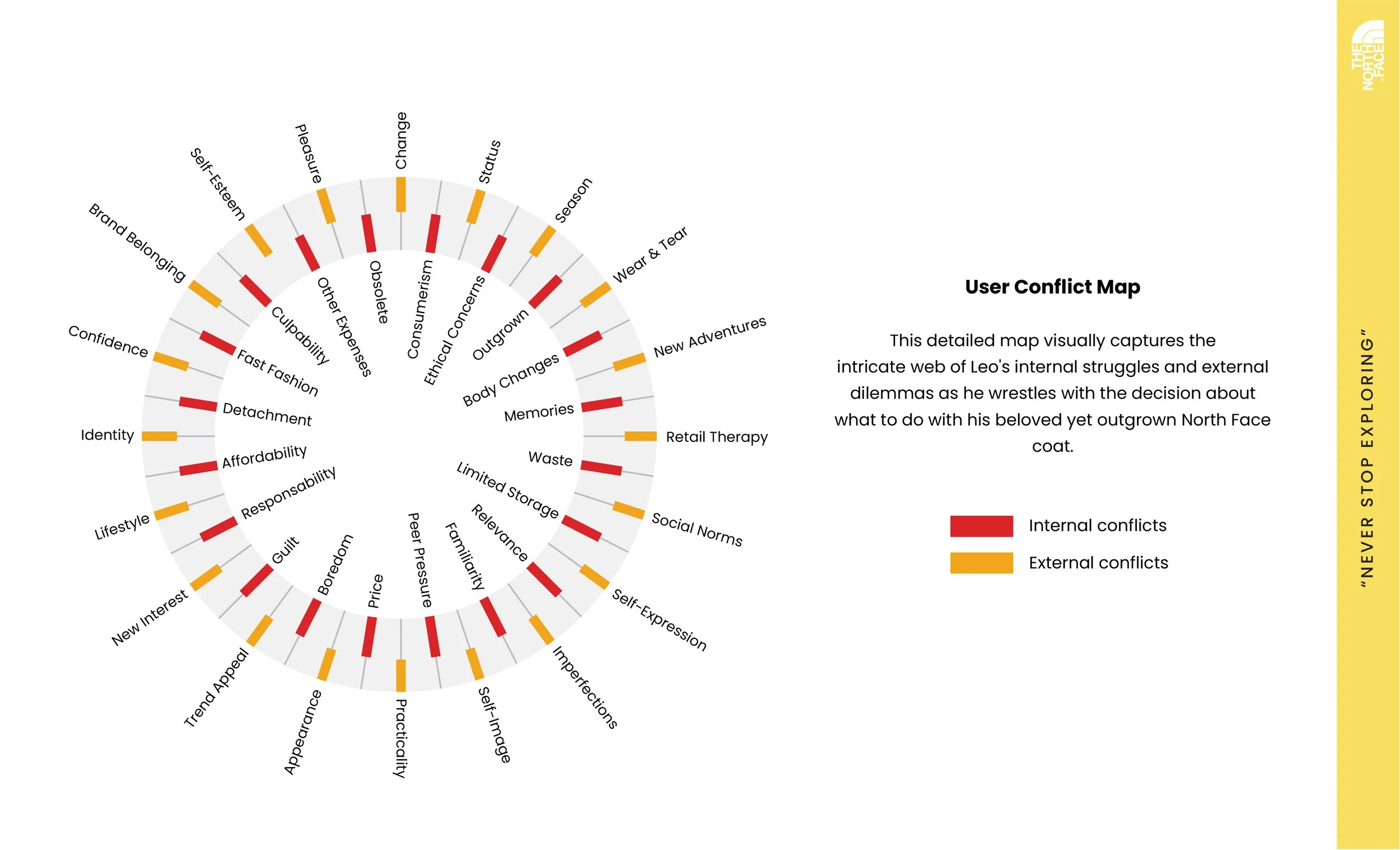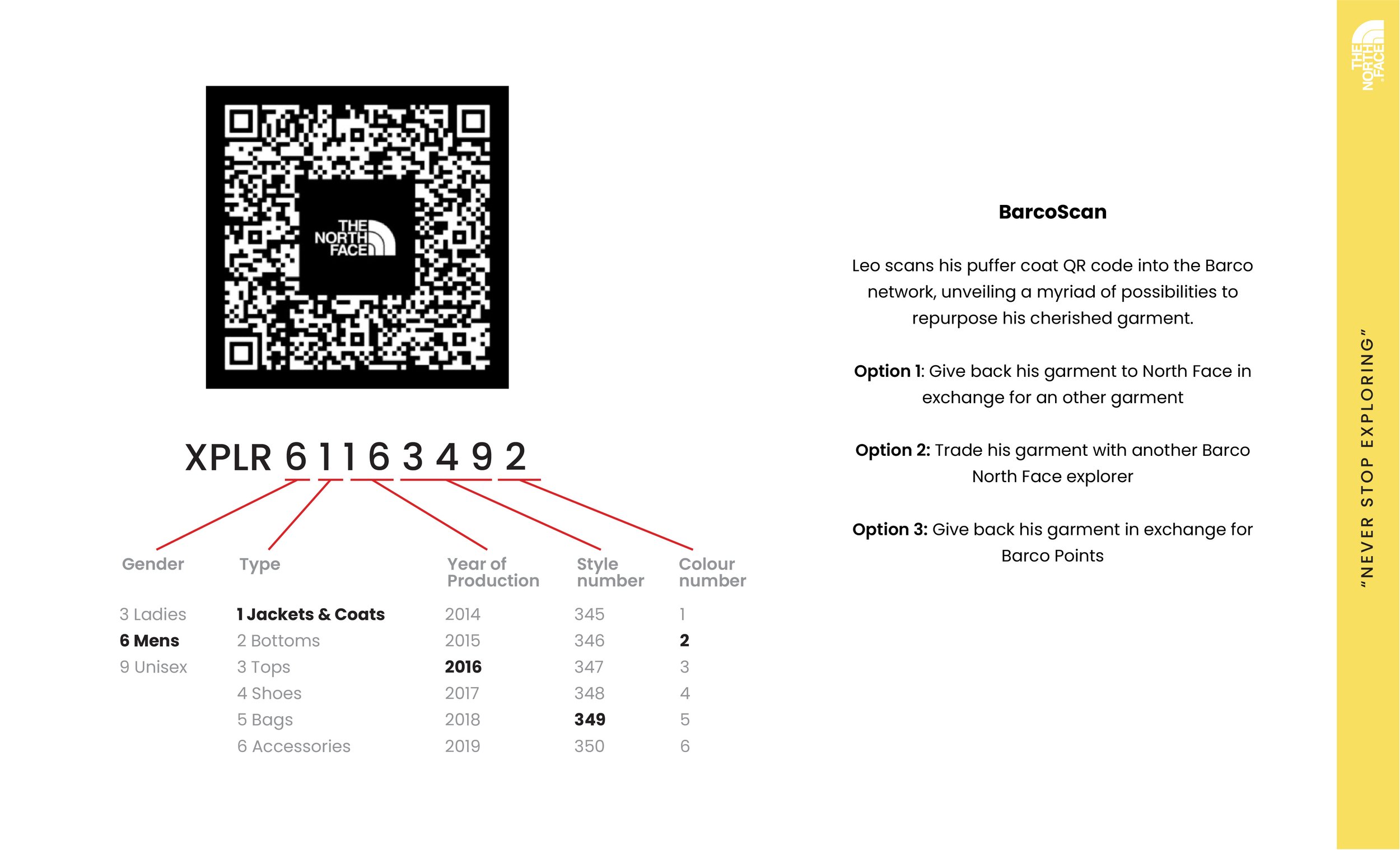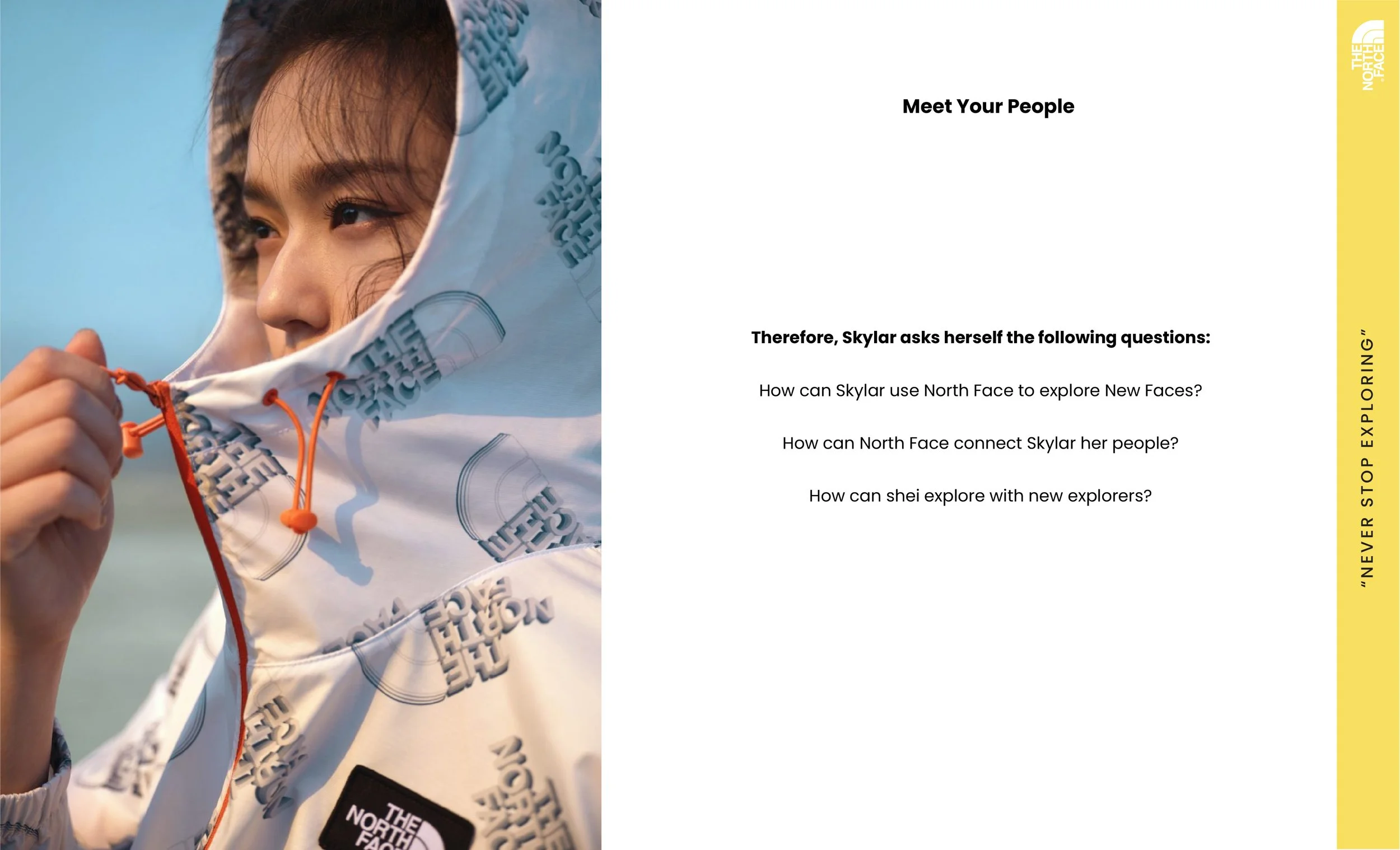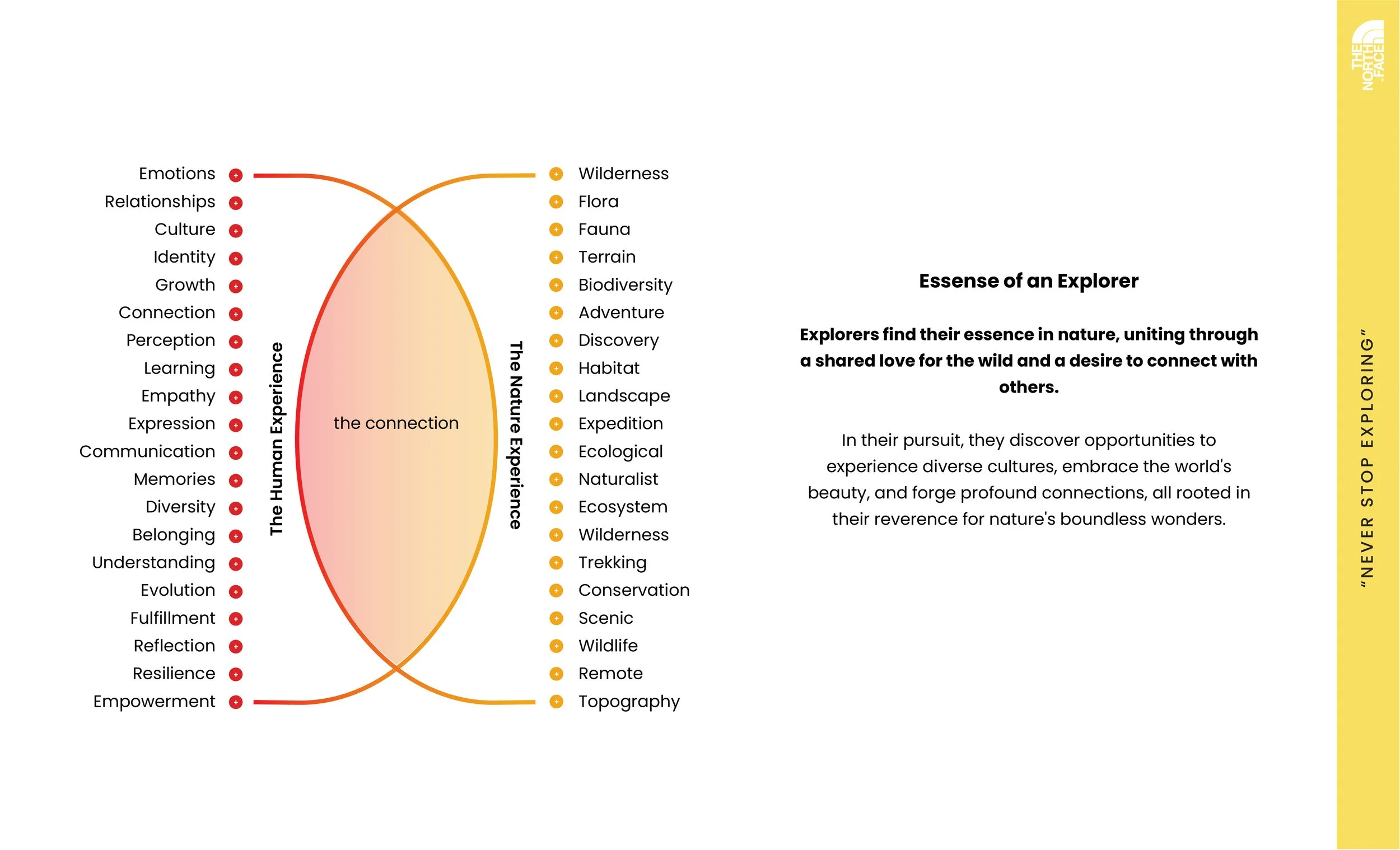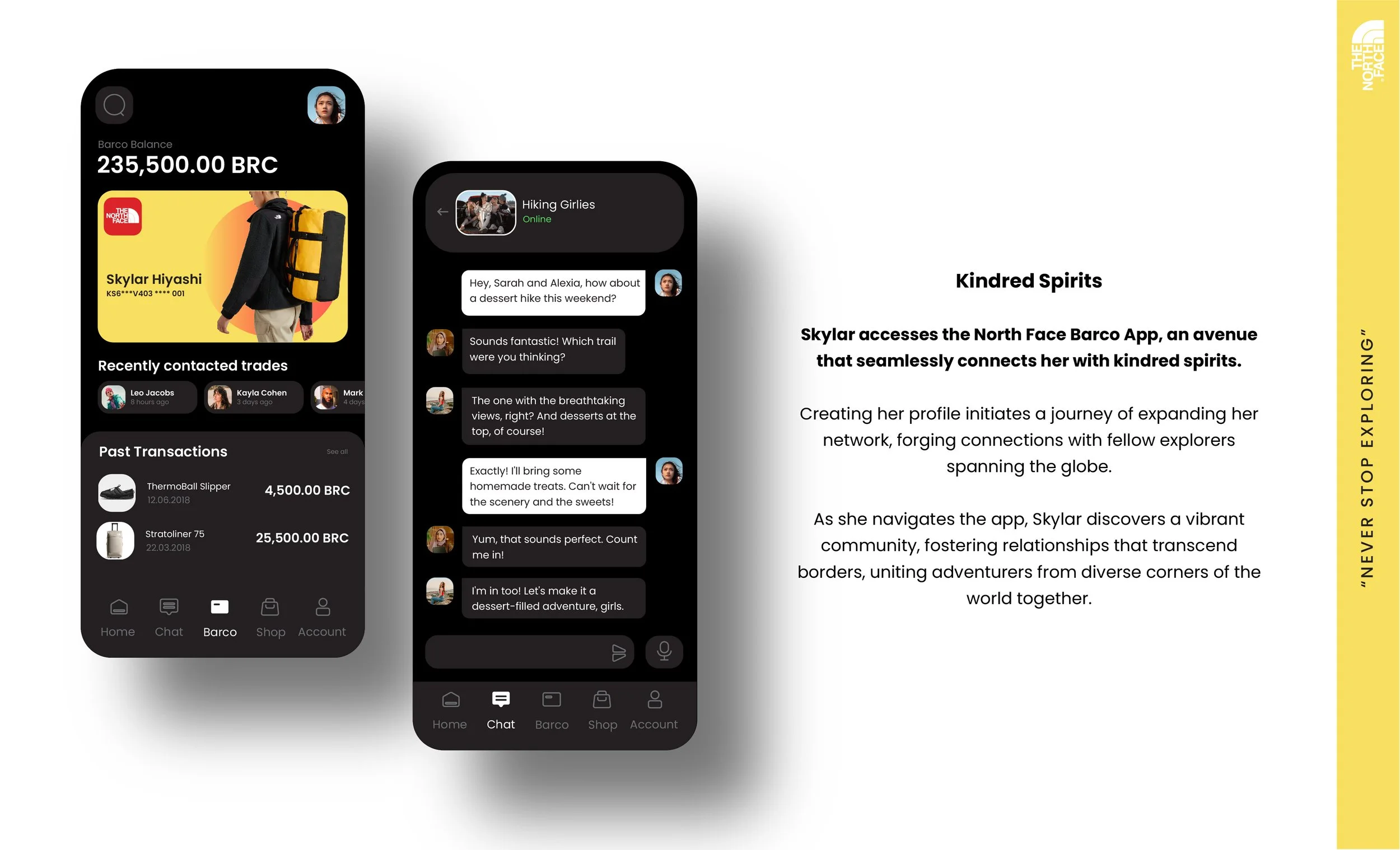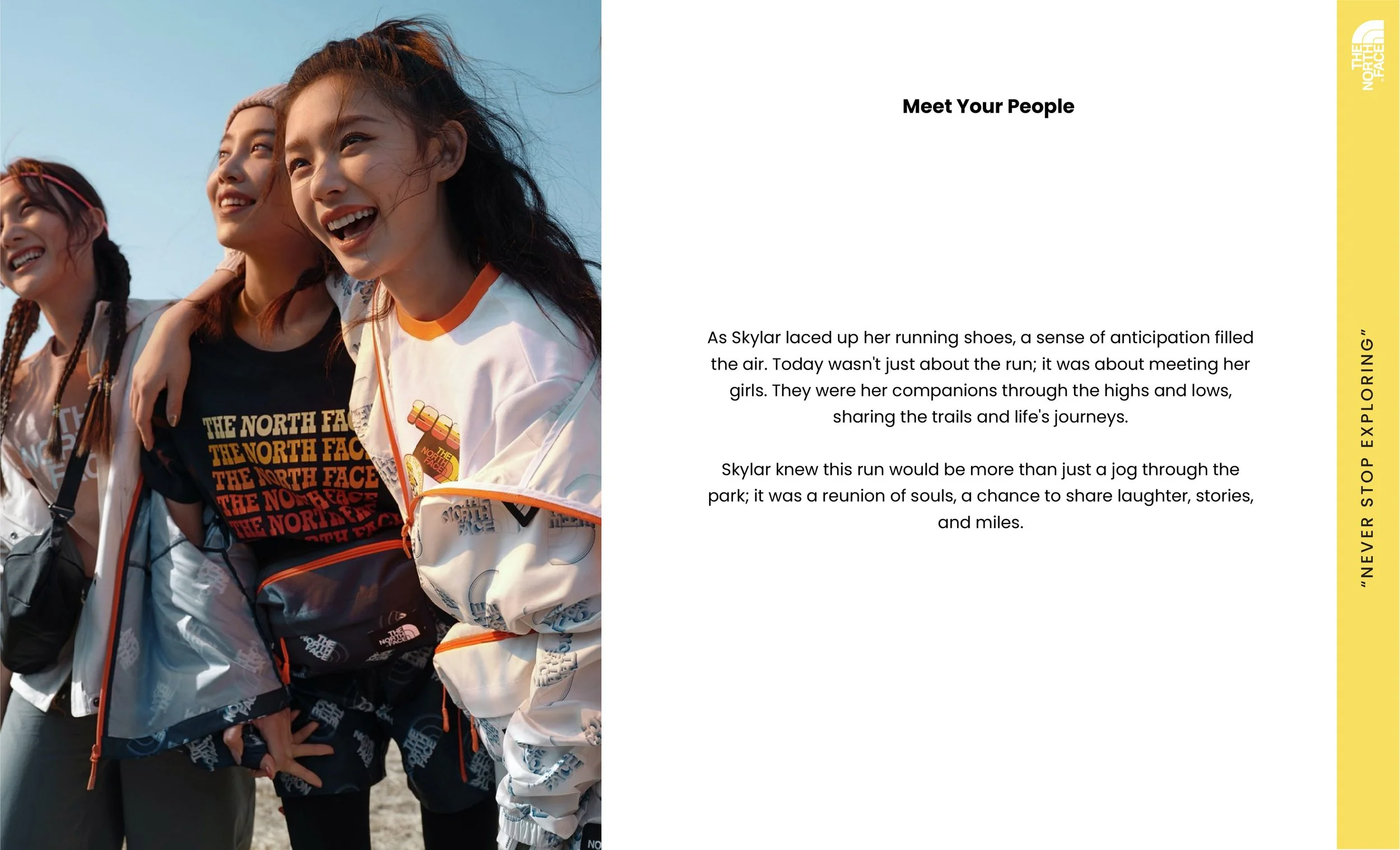
Academic Team Project - 2019
Focus: Conceptual Thinking
Duration: 4 Weeks
Project Overview:
This project represents a conceptual exploration centred on understanding consumer behaviour trends to craft an innovative business solution aimed at resolving a pressing market issue. In this context, we have envisioned a digital barter program tailored for North Face, enabling users to exchange or sell their pre-owned North Face equipment.
Market Positioning
The North Face brand has been a beacon of excellence in outdoor gear, clothing, and footwear for over half a century. They consistently surpass the expectations of adventurous souls, driven by an unwavering commitment to innovation. Their remarkable legacy has ignited wanderlust in explorers across the globe.
Not only do North Face's groundbreaking products offer unparalleled performance, but they also inspire hope, beckoning individuals of diverse backgrounds to embark on awe-inspiring journeys. These journeys unravel the mysteries of uncharted territories and reveal the Earth's hidden treasures.
Target Demographic
Age: North Face attracts a broad age range, ranging from late teens to middle-aged individuals. Their product offerings cater to young adults looking for stylish and functional outdoor gear and older individuals seeking durable, high-performance equipment.
Gender: Known for being gender-inclusive, appealing to both men and women. They offer a wide range of unisex and gender-specific products.
Income Level: Often associated with quality and performance, which places them in a higher price range. As a result, their typical customers tend to have middle to upper-middle income levels.
Type of Customers: Typically outdoor enthusiasts and adventure seekers. This includes hikers, climbers, campers, skiers, snowboarders, and individuals who engage in various outdoor activities. They also cater to travellers and urban dwellers looking for stylish, durable outerwear.
Market Competition
North Face differentiates itself from its competition through its recognition, versatility, and its reputation. The North Face has a strong and recognizable brand, synonymous with quality and adventure. This recognition attracts loyal customers who desire to be part of the brand.
However, the company lacks sustainability and innovation, and their prices are limiting. North Face faces growing pressure to enhance its sustainability practices and minimize its environmental impact. Additionally, some perceive North Face as lagging behind in terms of innovation compared to competitors who are pushing the boundaries of technology and materials. Finally, there is a prevailing perception that North Face's products may come at a higher price point, potentially limiting access to budget-conscious consumers.
Consumer Behaviour Exploration
The Sharing Economy: is a behaviour trend that involves individuals sharing or renting goods, services, or resources with others rather than owning them outright. Facilitated by digital platforms, this trend is favoured for its positive impact on sustainability by reducing waste and the carbon footprint. It also provides cost savings and encourages community building, aligning with modern lifestyles and the desire for resource-efficient and collaborative approaches over traditional ownership.
Bartering: is a notable behaviour trend where individuals directly exchange goods or services without using money. This practice, rooted in historical traditions, has seen a resurgence, driven by economic challenges and a growing interest in sustainability. Bartering offers an eco-friendly alternative by reducing the need for new purchases, contributing to a decrease in resource consumption and waste. It fosters a sense of community and trust as transactions often occur within local networks.
New Emerging Trend
BARCO is a contemporary reimagining of the age-old practice of bartering, tailor-made for the 21st century. In this innovative trend, there's no need for money because you acquire goods by offering your services, items, or skills in exchange. With BARCO, users have the opportunity to rethink what currency means and reshape the way we approach purchasing, ushering in a new cultural shift in consumer behaviour.
Current Market Problem
Annually, 10.46 million tons of clothing are discarded globally, often ending up in landfills or being burned, costing $45 per ton for disposal. This has significant environmental consequences, contributing to pollution and greenhouse gas emissions. Sustainable fashion practices, consumer awareness, and government regulations are essential to address this issue and reduce waste while promoting economic and environmental sustainability.
Our Solution
Rather than discarding their new clothing items, North Face would integrate Barco into their brand. This innovative approach enables their customers to exchange their old garments for brand-new ones or trade them with fellow North Face enthusiasts. In this system, the clothes' worth is not determined by monetary value but by the narratives of North Face explorers and the stories behind the garments, thus giving these clothing items a new lease of life.
The Barco System
